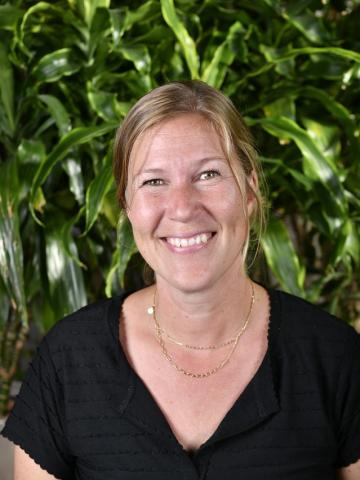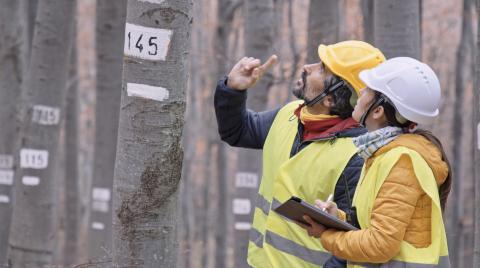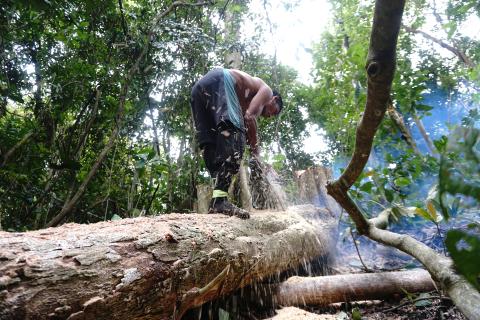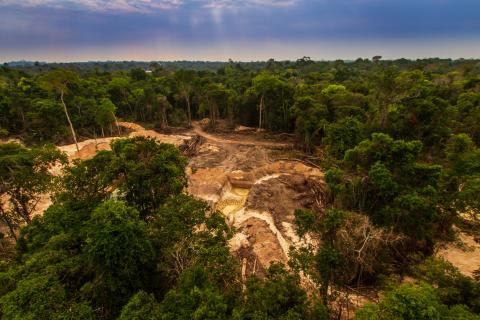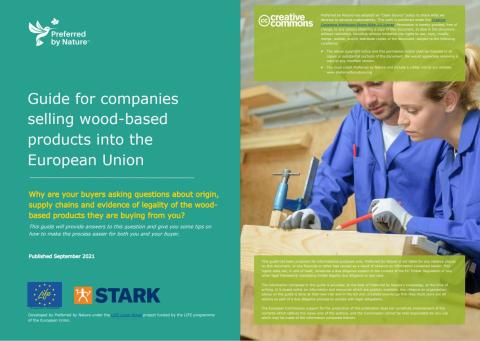Risk profiles: New free tools for legal timber sourcing
NEPCon has published the first four in a series of free, user-friendly Forestry Risk Profiles. Each covering one country, the profiles include information helping companies to assess and address risks of illegal timber sourcing.
In an effort to facilitate legal timber trade, NEPCon is producing Forestry Risk Profiles for a number of timber producing countries.
“Our intention is to provide up-to-date, country-specific information that buyers can use to minimise the risk of sourcing illegal timber. This should help the companies in meeting the EUTR and similar laws”, explains Alexandra Banks, timber legality expert in NEPCon.
The first four profiles are now launched, covering Brazil, Cameroon, Myanmar and Vietnam.
Knowledge needed to manage EUTR risk
The EU Timber Regulation (EUTR) requires EU companies to ensure that imported timber products are of legal origin. The onus is on the individual EU company when it comes to identifying applicable law and judging the risk of violations.
“These are complex tasks requiring detailed in-country information and lots of work. It makes a lot of sense to make information for each country available in one spot. Otherwise, a lot of companies will be duplicating these efforts,” says Ms Banks.
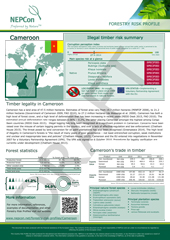
The profiles are partly based on research and analysis by projects that NEPCon is involved in. Examples include the FSC Centralised National Risk Assessments (CNRAs) and a project supporting the FLEGT (Forest Legality, Enforcement and Trade) process in Vietnam. The profiles are freely available for online.
Ms Banks underlines that the profiles are ‘works in progress’. NEPCon issues no guarantee that they are 100% correct or complete. “The information provided is correct to the best of our knowledge. Yet we have chosen to present them as drafts, to make users aware of the uncertainties involved. The profiles not only require a lot of hard work to produce, they also need a sustained effort to keep them updated. However, this type of overview fills a real gap. We’re seeking a long-term solution for maintaining these tools,” she says.
Focus on high risk countries
“The Forestry Risk Profiles cover countries with a high level of corruption or illegal harvesting. This is where buyers are facing the most serious challenges in securing low-risk supplies,” says Ms Banks. She points out that within a country, risk may vary depending on the sub-national region, timber species, or other factors. The profiles provide such detail where possible.
“For example, Brazil is home to five CITES species and two other protected species where buyers need to be extra careful of the documentation provided”, she says. “Also, buyers will likely find it useful to know that their risk is generally much lower when sourcing from Brazilian plantations compared to sourcing from natural forests”.
For each country, the profiles provide the following information:
- A list of the most common native and plantation tree species that are traded.
- Export and import statistics.
- The risk of illegal logging in the forest and supply chain risks.
- Recommended options to mitigate risks.
- Occurrence of low risk timber, CITES species and protected species.
- A list of legally required documents for harvesting, transport and export.
- An annex with a list of applicable legislation.
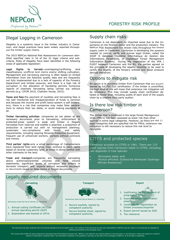
Help for smaller companies
Ms Banks explains that the new profiles are part of NEPCon’s efforts to help small and medium sized enterprises (SMEs) in securing legal timber trade.
“Without support tools, SMEs are at risk of falling behind in today’s regulated market”, she explains. She adds that the profiles are useful also for larger companies that need a good overview of timber legality issues in a country.
The Forestry Risk Profiles are the latest addition to the collection of free due diligence tools developed by NEPCon, including also the free LegalSourceTM Due Diligence System.
Underpinning the FLEGT process
The profiles also aim to support the wider EU FLEGT process. Three of the countries covered by the profiles - Cameroon, Myanmar and Vietnam – are involved in the FLEGT VPA (Voluntary Partnership Agreement) process with the EU.
“With the EUTR in force, the EU timber industry is obliged to minimise risk that timber originates from illegal harvest. The FLEGT VPA process is maybe the strongest tool for achieving this goal. However, given the governance challenges to address, FLEGT licensing can take time,” explains Ms Banks.
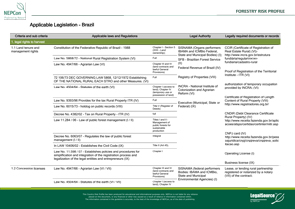
“Meanwhile, NEPCon strives to provide due diligence tools for the private sector that build on the FLEGT VPA results and work. The country profiles is an example of this. They relate to the legality definitions developed in the VPAs and they draw on the experience gained in the VPA process. Conversely, we hope that the detailed risk analysis laying the ground for the profiles may be useful in the further work on developing the national VPAs.”
A lists of applicable legislation in the country is included for each profile.
Additional profiles are made available for free at www.nepcon.org/forestry-risk-profiles as they are completed.
